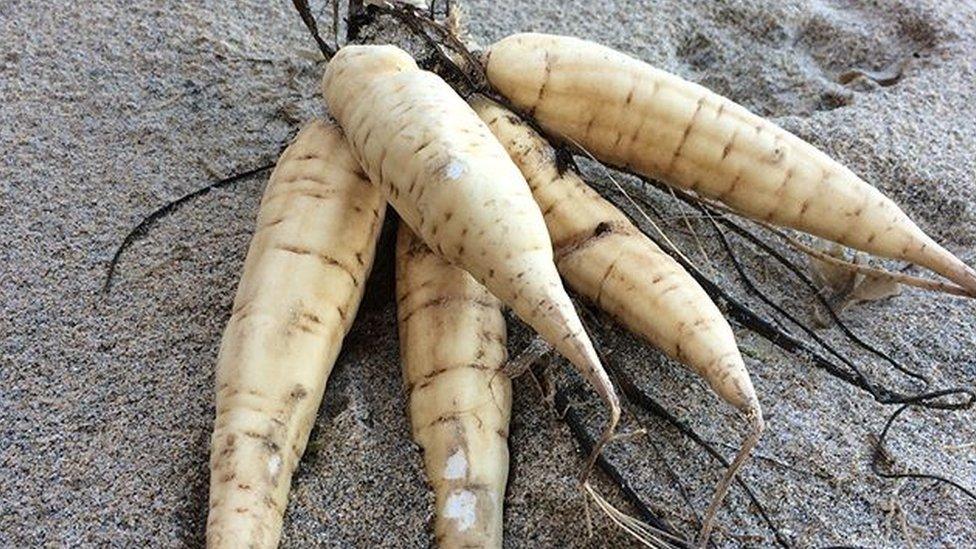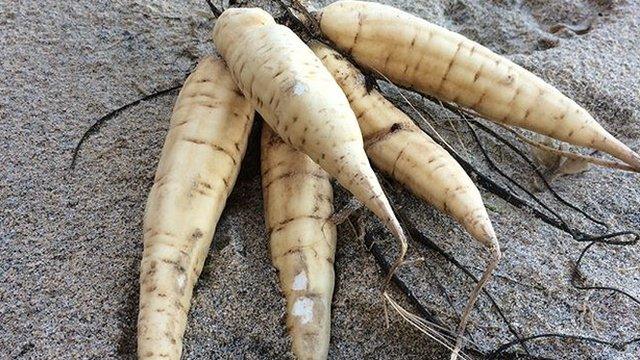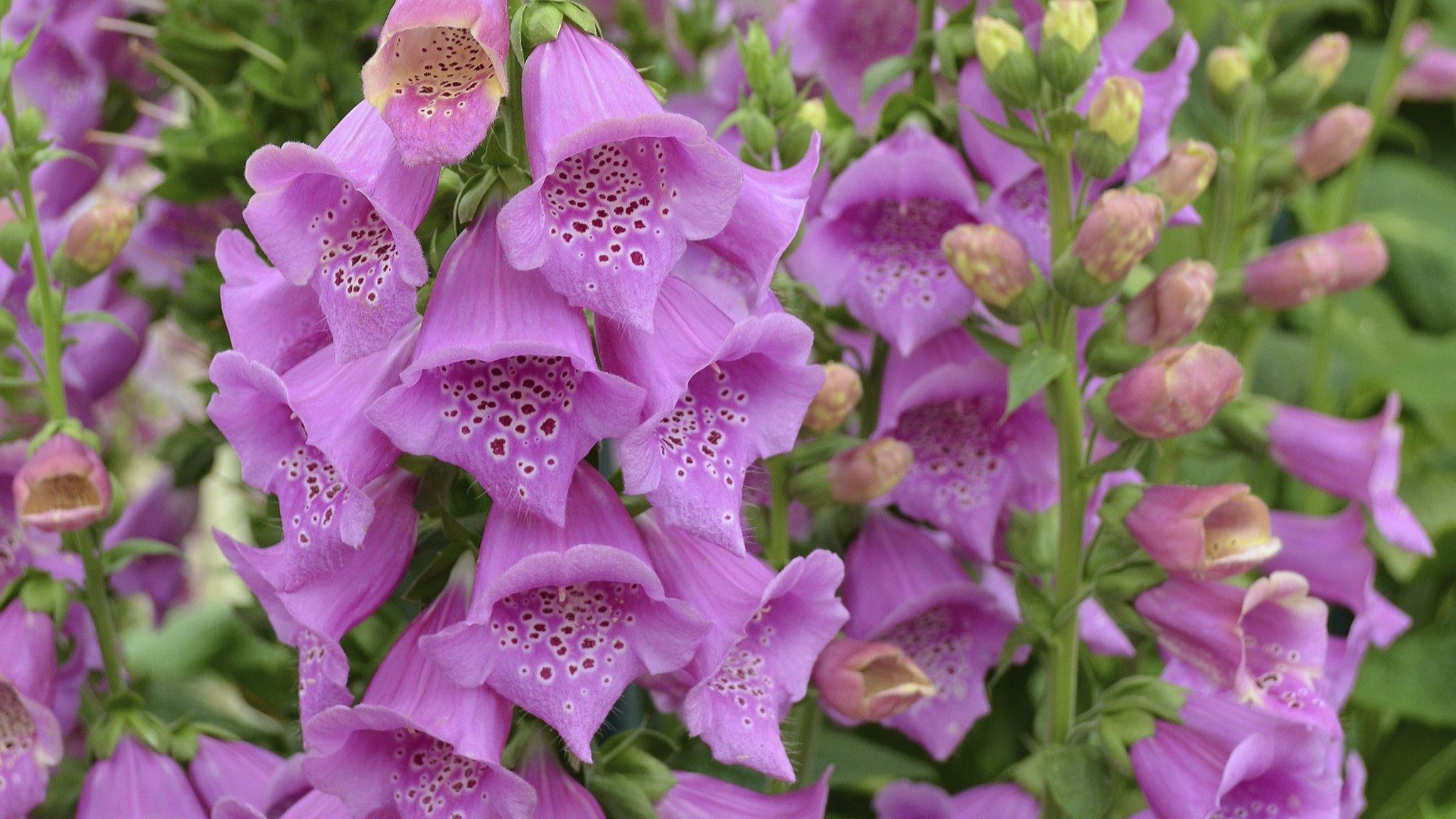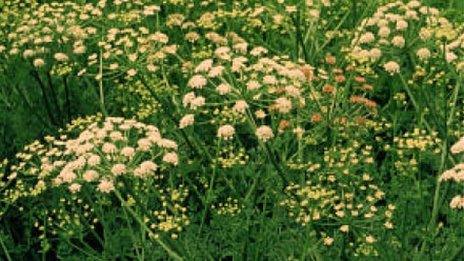St Bees beach dog walkers warned to avoid toxic plants
- Published

The roots of hemlock water dropwort are also known as "poisonous parsnips" and "dead man's fingers"
Dog walkers have been warned to keep their pets clear of poisonous plants washing up on a Cumbria beach.
The Maritime and Coastguard Agency said there had been reports, external of hemlock water dropwort roots, also known as "dead man's fingers", washing up on St Bees beach, near Egremont.
It is thought recent storms uprooted the plants and they were washed ashore.
The plant's roots are "extremely toxic to both animals and humans", a spokesman said.
Hemlock water dropwort, also known as "poisonous parsnips", is common in coastal areas, but can prove fatal to humans and animals by attacking the nervous system and causing the body to shut down.
Anyone who finds the plant on the beach is asked to report the discovery to Copeland Borough Council.
An HM Coastguard spokesman said: "If you think your dog may have come into contact or ingested any poisonous parsnips, it is advised to seek veterinary assistance as soon as possible.
"These plants also pose health risks to humans if physical contact is made, so caution is advised at this time."

Follow BBC North East & Cumbria on Twitter, external, Facebook, external and Instagram, external. Send your story ideas to northeastandcumbria@bbc.co.uk, external.
Related topics
- Published9 March 2018

- Published27 August 2014

- Published6 March 2014
